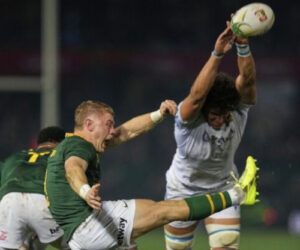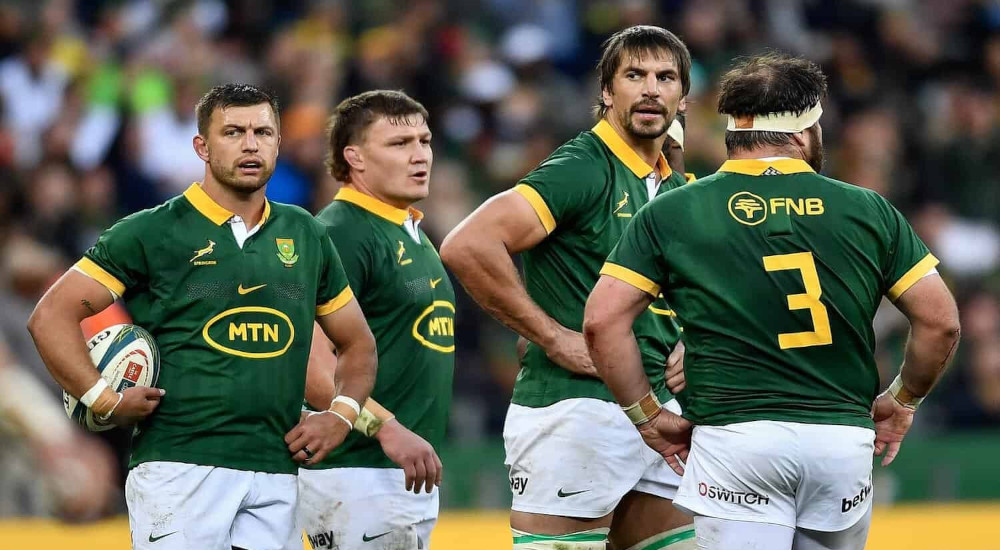The air before kickoff in Mbombela was thick with that strange South African electricity, part anticipation, part ancestral memory. A Springbok Test match always carries weight, but when Italy stepped onto South African soil this July, there was an added layer to the atmosphere. Not tension exactly, but something more elusive. A quiet sense that these games weren’t just about points or rankings. They were about restoration. About reckoning. After a season of shifting leadership, bruised egos, and uneven performances, the Springboks weren’t just hosting a visiting side, they were looking for clarity. And Italy, in their own determined way, made sure it wouldn’t come easy.
The first match set the tone. South Africa looked composed, precise, and dominant in all the expected areas. Yet even as the score tilted heavily in their favour, there was an undercurrent of restlessness. Italy refused to collapse. They defended phases as if each one was its own test of will, and while their attacking threat never quite ignited, their presence was undeniable. The kind of presence that forces reflection. The kind that exposes what isn’t quite right, even in a winning performance.
For the Springboks, these matches served as both proving ground and mirror. With familiar names like Kolisi returning from injury and newer blood filtering through the front row, the team wore its jersey with the expectation that always follows it, decades of thunder behind every run. But these weren’t celebratory Tests. They were quieter, internal. They had the mood of preparation, of sharpening rather than showcasing. It was clear from the coaching box to the last bench warmer that these games were not ends in themselves. They were chapters in a larger book the Springboks aren’t finished writing.
In the stands, supporters knew it too. Conversations weren’t about dominance, they were about intent. A couple in old Bok jerseys leaned over beers in Bloemfontein, discussing the tempo of the breakdown. At a Goldrush Casino lounge in Port Shepstone, eyes flicked between bingo screens and the match broadcast, but when the Boks edged the ball wide, attention snapped back. These weren’t casual glances, they were studies. Because South Africans know their rugby in a way that transcends sport. They watch body language as much as line speed. They read players’ shoulders like open books.
The post-match commentary from within the squad was reserved. Phrases like “pleased with the result” and “room for improvement” rang with truth. No one was pretending this was the apex. If anything, these Tests served as a sort of purgatory, necessary but not definitive. The real questions still linger. Can the Springboks reclaim their identity in time for their northern clashes? Are the new combinations settling or still searching? And perhaps most importantly, what is the emotional state of this side as it moves into a new era of competition?
Italy’s presence only heightened these questions. They came with no illusions, no sense of playing for anything but pride and purpose. Their body language after each match was tired but not broken. You could see it in the way their forwards gathered post-game, arms slung over shoulders, not because they had been defeated, but because they had endured. In some ways, they offered the Springboks a gift, an honest contest, devoid of spectacle, rooted in grind and resistance. They didn’t come to perform. They came to test.
For South Africa, these moments matter. The team is still recalibrating, not just tactically but emotionally. The shadow of past victories remains long, and living under its silhouette comes with a unique pressure. To wear green and gold is to carry generations on your back, players who fought with broken noses and tired lungs, who played for pride when politics and identity weighed heavier than any opposition. The jersey carries all of that. And when a team is in transition, as this one clearly is, the jersey can start to feel heavier.
 There’s something deeply human about watching a side of giants search for themselves. Watching experienced players shoulder the quiet pressure of knowing their legacies are being written in real-time. Watching new players walk into the changing room and realise that talent is only the beginning. Watching coaches who know that the game has moved but the expectations remain the same. And all of it unfolds in front of a nation that knows exactly what it wants, a Springbok team that doesn’t just win, but represents.
There’s something deeply human about watching a side of giants search for themselves. Watching experienced players shoulder the quiet pressure of knowing their legacies are being written in real-time. Watching new players walk into the changing room and realise that talent is only the beginning. Watching coaches who know that the game has moved but the expectations remain the same. And all of it unfolds in front of a nation that knows exactly what it wants, a Springbok team that doesn’t just win, but represents.
Perhaps that’s what made this Italian tour so compelling in its own way. It wasn’t about the opposition. It was about the internal conflict. The need for cohesion. The desire to remember what this team stands for when the World Cup is no longer the only goalpost. These Tests weren’t dress rehearsals, they were diagnostics. They told us where we stand. Where the cracks are. Where the heartbeat still feels strong, and where it needs reviving.
Outside the stadiums, the rugby talk this month has been unusually measured. Less noise, more listening. In barber chairs in Durban North, old men dissected ruck technique with the precision of surgeons. In township clubs where television signals flicker but spirit remains clear, young players mirrored the Bok patterns in warm-up games, pretending to be Kwagga or Libbok, but doing so with an edge, a hunger. Because every match the Boks play isn’t just a game, it’s a statement. And the statement right now is, we’re not there yet.
But perhaps that’s the most Springbok thing of all. Never being quite done. Always chasing the next version of themselves. Never comfortable. Always slightly in conflict. In that sense, the Italy tour did exactly what it needed to do. It shook loose the assumptions. It reminded the squad that nothing is guaranteed, not form, not cohesion, not the crowd’s love. All of it must be earned. Again. And again.
So, as the team regathers, as players return to their franchises and coaches hunch over tape in dim-lit offices, the work continues. Not glamorous, not headline-grabbing, but necessary. Because for all the trophies in the cabinet and statues cast in bronze, the thing that has always defined the Springboks isn’t history, it’s hunger.
And that, above all else, remains unfinished business.




